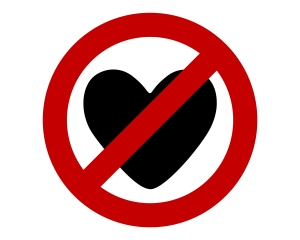Change in people follows a predictable pattern. Understanding this pattern can help you understand where you are in the change process and how to move to the next stage.
Stage 1: Unconscious to conscious
The first stage is going from unconscious to conscious.
In recovery work it’s called admitting you have a problem. In meditation, it’s called noticing when you’re thinking.
Sometimes this happens because you’re forced to wake up to something you didn’t notice before. Sometimes this happens because you want to change and you start looking. No matter how it happens before you can shift something you must become conscious of it.
How to know if you’re here: There’s a problem you’ve been avoiding. You know you need to deal with it, but you’re afraid to admit it to yourself or someone else.
How to move on: Share what’s going on with someone you trust. Ask them just to listen and reflect. Sometimes telling someone else can be really powerful and healing.
Stage 2: Fixing to Facing
The second stage is going from fixing to facing.
Once you notice something you’ll start seeing it everywhere. You’ll want it to be different but you won’t really know what to do about it. You’ll try to control, suppress, or hack your way around the problem. This generally doesn’t work very well. Some of these solutions will work for a little bit but usually you are just fixing something in the short term. It doesn’t really change things.
A lot of people get stuck here, just noticing something and fixing it so they can forget. This is why beer was invented.
If you’re really committed to change and you’ve got good support you’ll eventually move beyond this. You’ll realize that you can’t just fix what’s happening, you have to actually look at what’s causing it. You’ll have to change how you relate to it and address who you’re being that’s making this problem show up again and again.
How to know if you’re here: You see repeating problems showing up in your life. You try to stick a bandaid on it but the problem keeps coming up.
How to move on: Get some support to distinguish the problem and what’s actually causing it. Work to figure out how you have tried to fix it and what it would mean to stop creating this problem in the first place.
Stage 3: Problem to a Possibility
The third stage is going from a problem to a possibility.
Once you have fully faced your problem you have a chance to truly transform it and yourself. Most people who are stuck in fixing are focused on what they don’t want. They don’t want to smoke anymore, they don’t want to be single, they don’t want to have a cluttered inbox. All of this not wanting has you fixated on the problem.
Something magical happens when you start to think about what you DO want. You want to feel healthy and vibrant. You want to create an incredible relationship. You want to answer people in a timely manner.
When you start to focus on what you want instead of focusing on what you want to avoid, things begin to shift. You’ll start to realize that there are many ways to start creating what you want. You’ll get inspired by what your goal is instead of discouraged by your setbacks. You’ll start to get supported in creating what you want and things begin to feel a bit easier.
How to know if you’re here: You have a problem you want to resolve and you’ve begun to look at what’s been causing the problem, but you notice yourself focused on what you don’t want rather than what you do want.
How to move on: Get clear on what it is you’re creating. If you can’t let go of anything you’re averse to and try to figure out what your true desires are. If you need to get support to start coming up with some ways you could create what you want.
Stage 4: Proposing to Practice
The final stage is when you stop proposing dreams, visions, and ideas and you start taking action in alignment with what you want.
You don’t just talk about doing it tomorrow, you start doing it today. You are willing to do it imperfectly. You are willing to gesture towards what you want to do. You start doing it (whatever it is) because you know nothing changes by thinking about it. Things only change when we’re in action, when we live into our commitments one awkward step at a time.
How to know if you’re here: If you’ve come up with lots of possible solutions, but you’re not implementing them or you do implement them but as soon as you hit a bump in the road you backtrack. You find yourself looking for new tools and techniques in the hopes that by acquiring some sort of new knowledge you’ll be able to overcome the problem.
How to move on: Get into action! Find an accountability buddy or hire a coach to keep you accountable. Think of all of your actions like an experiment, your #1 goal is to try things so you can learn what does and doesn’t work. Try to respond to failure with the phrase, “How fascinating!” instead of “I suck”. Finally, keep going until you find a way through, this phase is all about persistence, persistence, persistence.
These 4 stages are what I’ve seen myself and others go through again and again. Sometimes people jump a stage, sometimes they fall back, but no matter where you are, learning how to see what you’re missing, face what you’re avoiding, focus on what you’re desiring, and practice what you’re creating can help you achieve way more than you could ever possibly imagine.
Go forth and get to work!




 Be A Bad Student.
Be A Bad Student.








